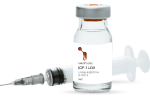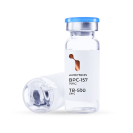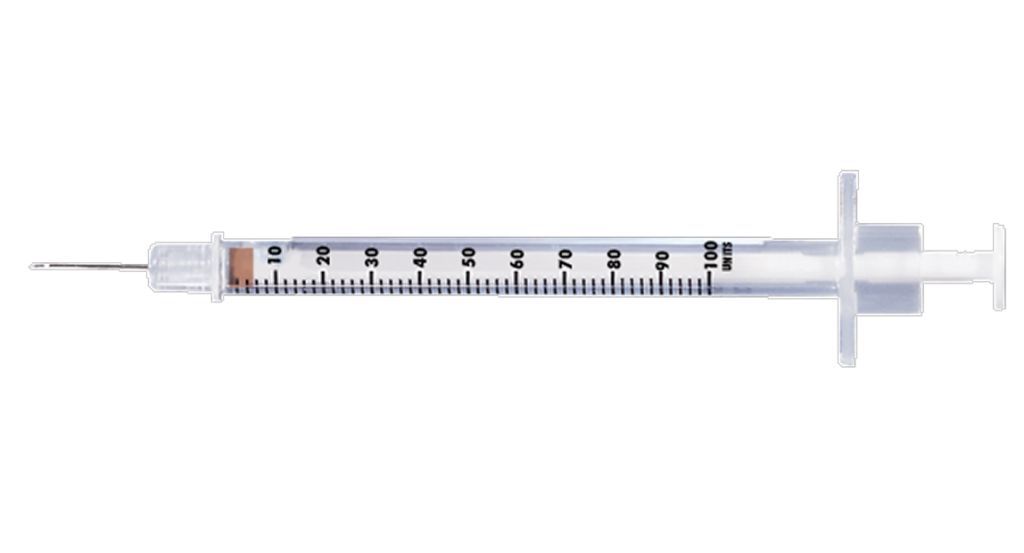Testagen is a short, bioregulatory peptide that primarily affects the pituitary gland and, subsequently, the thyroid gland. By acting on these glands, Testagen may help normalize testosterone and thyroid hormone production in specific scenarios. Through its influence on thyroid function, it also has a moderate impact on the immune system. Testagen is often viewed as a peptide that can “reset” the pituitary to a more youthful state, making it of interest in anti-aging research. Current studies explore its potential to boost testosterone, enhance thyroid function, and promote stem cell differentiation to support immune health.
Testagen is discussed in research as a bioregulatory peptide—a short chain that interacts with natural signaling along the pituitary–thyroid axis. In plain terms, it’s used to explore how top-level “control centers” in the endocrine system send downstream messages that can influence testosterone and thyroid-related readouts in controlled models.
In preclinical and early research contexts, Testagen is explored for its potential to modulate markers tied to pituitary signaling, thyroid hormone balance, and knock-on effects that touch metabolism and immune activity. Some groups also investigate stem-cell–related readouts to see how regulatory signals may shift differentiation patterns. These are research signals, not medical outcomes, and results vary by model, dose, and protocol.
What sets our Testagen apart is clean, verified quality. Each batch is identity-confirmed (e.g., mass spectrometry) and purity-checked by HPLC with ≥99% purity (typical). You receive a lot-specific Certificate of Analysis (COA) with the actual test results—proof of identity, purity, and an analytical “fingerprint” you can cite in your records.
We emphasize batch-to-batch consistency. Specifications are held tight and every lot is tracked, so when you reorder you can match the same analytical profile. That repeatability helps reduce variability across method development, comparisons, and follow-up work where consistency matters as much as the initial readout.
If you value clarity, documentation, and high purity for endocrine and bioregulatory research, Testagen from AI Peptides delivers the essentials—verified identity, transparent COA, and reliable consistency—so you can focus on the science with confidence.
$110 USD
Out of stock
| Expiry date | 3/12/27 |
| Date Produced | 3/12/25 |
| CAS # | |
| Formula | C₆₂H₉₈N₁₆O₂₂ + C₂₁₂H₃₂₄N₅₆O₆₃S |
| M.W. | 1419.54 g/mol + 4963.49 g/mol |
| REF | |
| Purity | 99% HPLC |
| RUO | Research Use Only |
Not for human or veterinary use. Made in USA
This product is intended as a research chemical only. Not for human use. Peptides will arrive in a lyophilized (powder) form for maximum stability.
The combination of BPC-157 and TB-500 brings together two of the most widely researched peptides in regenerative medicine. When used in tandem, these peptides may synergize to support tissue repair, inflammation regulation, and recovery from musculoskeletal injuries.
BPC-157, a synthetic peptide derived from a protective compound in gastric juice, has demonstrated strong angiogenic (blood vessel-forming) and cytoprotective effects in preclinical studies. It has been shown to accelerate healing in tendons, ligaments, muscles, and even the nervous system. Additionally, BPC-157 may modulate nitric oxide pathways, reduce pro-inflammatory cytokines, and promote gastrointestinal repair.
TB-500, also known as thymosin beta-4, is a naturally occurring peptide involved in cell migration, angiogenesis, and tissue regeneration. It acts primarily through the regulation of actin, a protein essential for cell movement and structure. TB-500 has been studied for its potential to aid in wound healing, reduce inflammation, and promote recovery of soft tissue, including heart, eye, and skin tissue.
Together, BPC-157 and TB-500 may offer enhanced healing capabilities by targeting different but complementary biological pathways. While BPC-157 promotes local repair and protects tissues from damage, TB-500 facilitates cellular movement and regeneration on a broader systemic level. This blend is frequently explored in research models focused on sports injuries, post-surgical healing, and chronic inflammation.
BPC-157 Sequence: Gly-Glu-Pro-Pro-Pro-Gly-Lys-Pro-Ala-Asp-Asp-Ala-Gly-Leu-Val
TB-500 Sequence (fragment of Thymosin β4): Ac-Ser-Asp-Lys-Pro-Asp-Met-Ala-Glu-Ile-Glu-Lys-Phe-Asp-Lys-Ser-Lys-Leu-Lys-Lys-Thr-Gly
Molecular Weight (BPC-157): 1419.53552 g/mol
Molecular Weight (TB-500): ~4963 g/mol
All of our products are manufactured using the Lyophilization (Freeze Drying) process, which ensures that our products remain 100% stable for shipping for up to 3-4 months.
Once the peptides are reconstituted (mixed with bacteriostatic water), they must be stored in the fridge to maintain stability. After reconstitution, the peptides will remain stable for up to 30 days.
Lyophilization is a unique dehydration process, also known as cryodesiccation, where the peptides are frozen and then subjected to low pressure. This causes the water in the peptide vial to sublimate directly from solid to gas, leaving behind a stable, crystalline white structure known as lyophilized peptide. The puffy white powder can be stored at room temperature until you’re ready to reconstitute it with bacteriostatic water.
Once peptides have been received, it is imperative that they are kept cold and away from light. If the peptides will be used immediately, or in the next several days, weeks or months, short-term refrigeration under 4C (39F) is generally acceptable. Lyophilized peptides are usually stable at room temperatures for several weeks or more, so if they will be utilized within weeks or months such storage is typically adequate.
However, for longer term storage (several months to years) it is more preferable to store peptides in a freezer at -80C (-112F). When storing peptides for months or even years, freezing is optimal in order to preserve the peptide’s stability.
For further information on proper storage techniques, click the link below:
Peptide Storage Information
This product is intended as a research chemical only. Not for human use. Peptides will arrive in a lyophilized (powder) form for maximum stability.
The combination of BPC-157 and TB-500 brings together two of the most widely researched peptides in regenerative medicine. When used in tandem, these peptides may synergize to support tissue repair, inflammation regulation, and recovery from musculoskeletal injuries.
BPC-157, a synthetic peptide derived from a protective compound in gastric juice, has demonstrated strong angiogenic (blood vessel-forming) and cytoprotective effects in preclinical studies. It has been shown to accelerate healing in tendons, ligaments, muscles, and even the nervous system. Additionally, BPC-157 may modulate nitric oxide pathways, reduce pro-inflammatory cytokines, and promote gastrointestinal repair.
TB-500, also known as thymosin beta-4, is a naturally occurring peptide involved in cell migration, angiogenesis, and tissue regeneration. It acts primarily through the regulation of actin, a protein essential for cell movement and structure. TB-500 has been studied for its potential to aid in wound healing, reduce inflammation, and promote recovery of soft tissue, including heart, eye, and skin tissue.
Together, BPC-157 and TB-500 may offer enhanced healing capabilities by targeting different but complementary biological pathways. While BPC-157 promotes local repair and protects tissues from damage, TB-500 facilitates cellular movement and regeneration on a broader systemic level. This blend is frequently explored in research models focused on sports injuries, post-surgical healing, and chronic inflammation.
BPC-157 Sequence: Gly-Glu-Pro-Pro-Pro-Gly-Lys-Pro-Ala-Asp-Asp-Ala-Gly-Leu-Val
TB-500 Sequence (fragment of Thymosin β4): Ac-Ser-Asp-Lys-Pro-Asp-Met-Ala-Glu-Ile-Glu-Lys-Phe-Asp-Lys-Ser-Lys-Leu-Lys-Lys-Thr-Gly
Molecular Weight (BPC-157): 1419.53552 g/mol
Molecular Weight (TB-500): ~4963 g/mol
All of our products are manufactured using the Lyophilization (Freeze Drying) process, which ensures that our products remain 100% stable for shipping for up to 3-4 months.
Once the peptides are reconstituted (mixed with bacteriostatic water), they must be stored in the fridge to maintain stability. After reconstitution, the peptides will remain stable for up to 30 days.
Lyophilization is a unique dehydration process, also known as cryodesiccation, where the peptides are frozen and then subjected to low pressure. This causes the water in the peptide vial to sublimate directly from solid to gas, leaving behind a stable, crystalline white structure known as lyophilized peptide. The puffy white powder can be stored at room temperature until you’re ready to reconstitute it with bacteriostatic water.
Once peptides have been received, it is imperative that they are kept cold and away from light. If the peptides will be used immediately, or in the next several days, weeks or months, short-term refrigeration under 4C (39F) is generally acceptable. Lyophilized peptides are usually stable at room temperatures for several weeks or more, so if they will be utilized within weeks or months such storage is typically adequate.
However, for longer term storage (several months to years) it is more preferable to store peptides in a freezer at -80C (-112F). When storing peptides for months or even years, freezing is optimal in order to preserve the peptide’s stability.
For further information on proper storage techniques, click the link below:
Peptide Storage Information
This product is intended as a research chemical only. Not for human use. Peptides will arrive in a lyophilized (powder) form for maximum stability.
The combination of BPC-157 and TB-500 brings together two of the most widely researched peptides in regenerative medicine. When used in tandem, these peptides may synergize to support tissue repair, inflammation regulation, and recovery from musculoskeletal injuries.
BPC-157, a synthetic peptide derived from a protective compound in gastric juice, has demonstrated strong angiogenic (blood vessel-forming) and cytoprotective effects in preclinical studies. It has been shown to accelerate healing in tendons, ligaments, muscles, and even the nervous system. Additionally, BPC-157 may modulate nitric oxide pathways, reduce pro-inflammatory cytokines, and promote gastrointestinal repair.
TB-500, also known as thymosin beta-4, is a naturally occurring peptide involved in cell migration, angiogenesis, and tissue regeneration. It acts primarily through the regulation of actin, a protein essential for cell movement and structure. TB-500 has been studied for its potential to aid in wound healing, reduce inflammation, and promote recovery of soft tissue, including heart, eye, and skin tissue.
Together, BPC-157 and TB-500 may offer enhanced healing capabilities by targeting different but complementary biological pathways. While BPC-157 promotes local repair and protects tissues from damage, TB-500 facilitates cellular movement and regeneration on a broader systemic level. This blend is frequently explored in research models focused on sports injuries, post-surgical healing, and chronic inflammation.
BPC-157 Sequence: Gly-Glu-Pro-Pro-Pro-Gly-Lys-Pro-Ala-Asp-Asp-Ala-Gly-Leu-Val
TB-500 Sequence (fragment of Thymosin β4): Ac-Ser-Asp-Lys-Pro-Asp-Met-Ala-Glu-Ile-Glu-Lys-Phe-Asp-Lys-Ser-Lys-Leu-Lys-Lys-Thr-Gly
Molecular Weight (BPC-157): 1419.53552 g/mol
Molecular Weight (TB-500): ~4963 g/mol
All of our products are manufactured using the Lyophilization (Freeze Drying) process, which ensures that our products remain 100% stable for shipping for up to 3-4 months.
Once the peptides are reconstituted (mixed with bacteriostatic water), they must be stored in the fridge to maintain stability. After reconstitution, the peptides will remain stable for up to 30 days.
Lyophilization is a unique dehydration process, also known as cryodesiccation, where the peptides are frozen and then subjected to low pressure. This causes the water in the peptide vial to sublimate directly from solid to gas, leaving behind a stable, crystalline white structure known as lyophilized peptide. The puffy white powder can be stored at room temperature until you’re ready to reconstitute it with bacteriostatic water.
Once peptides have been received, it is imperative that they are kept cold and away from light. If the peptides will be used immediately, or in the next several days, weeks or months, short-term refrigeration under 4C (39F) is generally acceptable. Lyophilized peptides are usually stable at room temperatures for several weeks or more, so if they will be utilized within weeks or months such storage is typically adequate.
However, for longer term storage (several months to years) it is more preferable to store peptides in a freezer at -80C (-112F). When storing peptides for months or even years, freezing is optimal in order to preserve the peptide’s stability.
For further information on proper storage techniques, click the link below:
Peptide Storage Information
From $43 USD - $50 USD
From $98 USD - $115 USD
From $68 USD - $80 USD
From $140 USD - $165 USD
From $85 USD - $100 USD
From $43 USD - $50 USD
Receive all the latest information on events, sales, & offers.


1
mg =100
mcg(µg)


0.1 mg
5 units
10 doses
2 mg/mL



FAQ:
All Ai-Peptides products are manufactured in the USA under strict quality control. Each peptide is analyzed using HPLC and Mass Spectrometry to confirm identity and purity, typically ≥99%. Every batch comes with a Certificate of Analysis (COA) you can view to verify authenticity and research-grade quality.
Our peptides are shipped lyophilized (powder form) for maximum stability. Store them in a cool, dry place until use. For long-term preservation, keep them refrigerated or frozen. Once reconstituted with a suitable research-grade solvent, keep the solution cold and protected from light to maintain integrity.
All products on our website can be purchased in any quantity available, from a single vial to larger amounts, simply by adjusting the quantity in your cart. We do not currently offer special wholesale pricing or custom bulk arrangements.

Mon - Fri 9AM - 4PM PST
Mon - Fri (Excluding holidays)
Orders placed and paid after 12PM PST are shipped the following business day
© 2026
Ai-Peptides.com. All Rights Reserved.
All products on this site are for Research, Development use only. Products are Not for Human consumption of any kind.
The statements made within this website have not been evaluated by the US Food and Drug Administration. The statements and the products of this company are not intended to diagnose, treat, cure or prevent any disease.
Ai-Peptides is a chemical supplier. Ai-Peptides is not a compounding pharmacy or chemical compounding facility as defined under 503A of the Federal Food, Drug, and Cosmetic act. AiPeptides is not an outsourcing facility as defined under 503B of the Federal Food, Drug, and Cosmetic act.